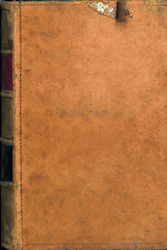Mr. Hart to Mr. Phelps.
El Paso, Texas, January 31, 1860.
My Dear Major: This morning I received another express from Chihuahua to myself and the Mexican prefect, Señor Vilarde, asking me to furnish the means to buy two hundred stand of arms for account of the governor Of Chihuahua, giving me a lien on the revenues of the State to reimburse the amount. The prefect, with myself, have procured the arms, and they leave to-morrow for the city of Chihuahua with an escort of one hundred men from El Paso.
Panal has been taken by the insurgent thieves, after much slaughter and cruelty. The prisons were emptied, and the prisoners, with a captain set over them by the invaders, were let loose to murder, sack, and despoil.
Particulars were not received at Chihuahua when the governor sent off the express for the arms. I presume American citizens were the ?rst to suffer at Panal, as they are leading merchants and business men of that city, of some 15,000 inhabitants, it being one of the richest mining regions of the State.
I will forward to you such information as I may receive from this part of Mexico.
Very truly, yours,
S. HART.
Hon. JOHN S. PHELPS,
Washington, D. C.
A letter in Difficulties on Southwestern Border, House Documents, Volume 126; Volume 128, United States House of Representatives, U.S. Government Printing Office, 1860
During the 12 years following the Mexican-American War there were present on the frontiers of Texas and Mexico many factors that tended to create disturbances. The topography of the country, the sparsity and general character of its population, the lack of an extradition treaty and of sufficient national authority, wild Indians of uncertain abode, the Mexican tariff system, all caused friction and gave encouragement to lawlessness which not only retarded the development of the region but often threatened to interrupt friendly relations between the two republics. [Border Troubles along the Rio Grande, 1848-1860, The Southwestern Historical Quarterly, Vol. 23, No. 2 (OCTOBER, 1919)]
